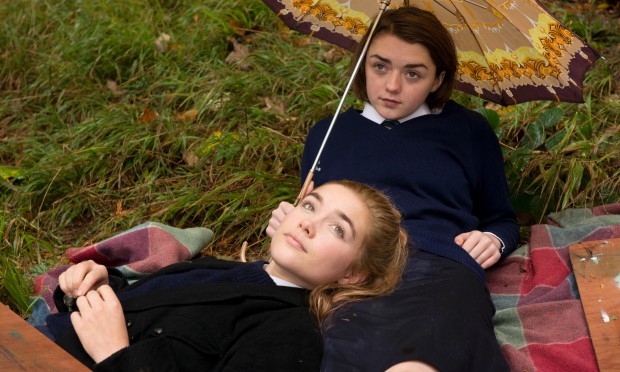Long live the glockenspiel, that typically dull percussion stalwart usually relegated to primary school memories, along with humdrum gym classes and endless repetitions of Kumbaya. Here the glock is like a new instrument altogether. Its eery, metallic tones haunt the early scenes of Carol Morley’s The Falling, filling them with an unexpectedly ethereal quality that is both childlike and yet somehow sophisticated at the same time – just like the longed for worldliness of the impatient teenage girls at the heart of this warped coming of age story.
The music (recorded by Everything but the Girls’s Tracey Thorn) is the backbone of this flawed yet deeply atmospheric film, which gets under your skin and stays there. Particularly, I suspect, for women and even more so for women who have ever been to an all-girls school, hotbeds of jealous passions and faux maturity. Remember the little rebellions (skirt length, skiving assembly), the anxiousness to have experienced everything (first kiss, nonchalant cigarette smoking), and the lies girls tell to imply experience, especially when it comes to boys?
All those classic teenage dramas are present in the claustrophobic little school world Morley has created, intensified by the passions of the late sixties setting, where sexual awakening threatens the social dynamics of teenagers and repressed school ma’ams alike, and where louder battles for gender equality sit unnervingly but unmistakably just around the corner.








Comments
Join the debate for just $5 for 3 months
Be part of the conversation with other Spectator readers by getting your first three months for $5.
UNLOCK ACCESS Just $5 for 3 monthsAlready a subscriber? Log in